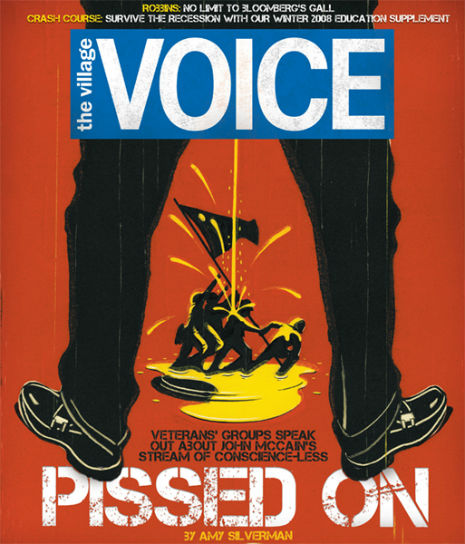
A guest essay from Charles Hugh Smith, cross-posted from his Of Two Minds blog:
If we dare look at the plain facts of the matter, we have to conclude the U.S. is a kleptocracy not unlike Greece, only on a larger and slightly more sophisticated scale.
Yesterday, I noted that Greece Is a Kleptocracy; the U.S. is a kleptocracy, too. Before you object with a florid speech about the Bill of Rights and free enterprise, please consider the following evidence that the U.S. is now a kleptocracy worthy of comparison to Greece:
1. Neither party has any interest in limiting the banking/financial cartel. The original Glass-Steagal bill partitioning investment banking from commercial banking was a few pages long, and it was passed in a few days. Our present political oligrachy spends months passing thousands of pages of complex legislation that accomplishes essentially nothing.
As Federal Reserve Bank of Kansas City President Thomas Hoenig recently noted (in a rare admission by an insider—I wonder how long it will be before he “resigns to pursue other opportunities,” i.e. is muzzled):
The problem with SIFIs (“systemically important financial institutions,” a.k.a. too big to fail banks) is they are fundamentally inconsistent with capitalism. They are inherently destabilizing to global markets and detrimental to world growth. So long as the concept of a SIFI exists, and there are institutions so powerful and considered so important that they require special support and different rules, the future of capitalism is at risk and our market economy is in peril.
Do you really think Dodd-Frank and all the other “fooled by complexity” legislation has accomplished anything? Hoenig cuts that fantasy off at the knees:
As late as 1980, the U.S. banking industry was relatively unconcentrated, with 14,000 commercial banks and the assets of the five largest amounting to 29 percent of total banking organization assets and 14 percent of GDP.
Today, we have a far more concentrated and less competitive banking system. There are fewer banks operating across the country, and the five largest institutions control more than half of the industry’s assets, which is equal to almost 60 percent of GDP. The largest 20 institutions control 80 percent of the industry’s assets, which amounts to about 86 percent of GDP.
In other words, nothing has really changed from 2008 except the domination of the political process and economy by the financial cartel has been masked by a welter of purposefully obfuscating legislation. This is of course the exact same trick Wall Street used to cloak the risk of the mortgage-backed derivatives it sold as “low risk” AAA rated securities: by design, the instruments were so complex that only the originators understood how they worked.
That is the current legislative process in a nutshell. Much of the 60,000 pages of tax code are arcane because they describe loopholes and exclusions written specifically to exempt a single corporation or cartel from Federal taxes.
The U.S. is truly a kleptocracy because its political leadership actually has no interest in limiting the banking/financial cartel. When questioned why their “reforms” are so toothless, legislators wring their hands and bleat, “Honest, I wanted to limit the banks but they’re too powerful.” Spoken like a true kleptocrat.
2. Our stock markets are dominated by insiders. It is estimated that some 70% of all shares traded are exchanged in private “dark pools” operated by the TBTF banks and Wall Street, and the majority of the remaining 30% of publicly traded shares are traded by high-frequency trading machines that hold the shares for a few seconds, or however long is needed to skim the advantages offered by proximity to the exchange and speed.
If that’s your idea of an “open market,” then you’re the ideal citizen for a kleptocracy.
3. The rule of law in the U.S. has been divided into two branches: one in name only for the financial Elites and corporate cartels, and one for the rest of us mere citizens. Between corporate toadies on the Supreme Court who have granted corporations rights to spend unlimited money lobbying and buying legislators as a form of “free speech”—ahem, how can something that costs billions of dollars be “free”?—and vast regulatory brueacracies that saw nothing wrong with MERS and the complete corruption of land and mortgage transfer rules, the U.S. legal system is now a perfection of kleptocracy.
As economist Hernando de Soto observed in The Destruction of Economic Facts, the ForeclosureGate mortgage mess is not just a series of petty paperwork mistakes—it is the destruction of the entire system of trustworthy transfer of property rights for non-Elites:
Knowing who owned and owed, and fixing that information in public records, made it possible for investors to infer value, take risks, and track results. The final product was a revolutionary form of knowledge: “economic facts.”
Over the past 20 years, Americans and Europeans have quietly gone about destroying these facts. The very systems that could have provided markets and governments with the means to understand the global financial crisis—and to prevent another one—are being eroded. Governments have allowed shadow markets to develop and reach a size beyond comprehension. Mortgages have been granted and recorded with such inattention that homeowners and banks often don’t know and can’t prove who owns their homes. In a few short decades the West undercut 150 years of legal reforms that made the global economy possible.
The results are hardly surprising. In the U.S., trust has broken down between banks and subprime mortgage holders; between foreclosing agents and courts; between banks and their investors—even between banks and other banks.
Frequent contributor Harun I. summarized the reality of this political and financial coup by kleptocrats:
As described by Georgetown University bankruptcy expert Adam Levitin, in testimony to subcommittee of the House Financial Services Committee, “If mortgages were not properly transferred in the securitization process, then mortgage-backed securities would in fact not be backed by any mortgages whatsoever, [and] could cloud title to nearly every property in the United States.” It would also raise the question of the legality of the resulting millions of foreclosures on American homeowners, since the banks cannot prove “ownership” of the foreclosed property.
The statement above gets to the elemental issue that apparently is lost on many otherwise intelligent people. This is not about frivolous claims based on technicalities. This is about securities fraud (theft) on a ludicrously massive scale. These so-called securities were sold to governments, pension funds and other financial institutions globally. Trillions were made by banks selling what is becoming clearly understood to be worthless pieces of paper and when the jig was up, which ultimately led to the destruction of economies globally, they made ordinary citizens the losers by sliding their worthless pieces of paper to the balance sheet of taxpayers worldwide.
And while some are quibbling over whether someone should get a free house, those who have perpetrated the greatest swindle in the history of mankind are about to get away with it, because they are “systemically important”, code for TBTF (too big to fail).
You think money laundering and tax evasion is a specialty only of Caribbean island “banking centers”? Think again; we have corporate oversight equivalent to that of Somalia. U.S.A. a haven for corporate money laundering: A little house of secrets on the Great Plains:
Among the firm’s offerings is a variety of shell known as a “shelf” company, which comes with years of regulatory filings behind it, lending a greater feeling of solidity. “A corporation is a legal person created by state statute that can be used as a fall guy, a servant, a good friend or a decoy,” the company’s website boasts. “A person you control… yet cannot be held accountable for its actions. Imagine the possibilities!”
“In the U.S., (business incorporation) is completely unregulated,” says Jason Sharman, a professor at Griffith University in Nathan, Australia, who is preparing a study for the World Bank on corporate formation worldwide. “Somalia has slightly higher standards than Wyoming and Nevada.”
The U.S. was declared “non-compliant” in four out of 40 categories monitored by the Financial Action Task Force, an international group fighting money laundering and terrorism finance, in a 2006 evaluation report, its most recent. Two of those ratings relate to scant information collected on the owners of corporations. The task force named Wyoming, Nevada and Delaware as secrecy havens. Only three states - Alaska, Arizona and Montana - require regular disclosure of corporate shareholders in some form.
4. Just as in Greece, taxes are optional for the nation’s financial Elites. In Greece, you don’t mention your swimming pool to avoid the “swimming pool tax.” Here in the U.S., that sort of tax avoidance is against the law (smirk). Here, you hire a Panzer division of sharp tax attorneys and escape taxation legally (well, mostly legally—whatever it takes to win).
If you are unfortunate enough to be a successful small entrepreneur who nets $100,000 a year, you pay 15.3% self-employment and 25% Federal tax on the bulk of your income, a combined rate of 40.3%, and a combined rate of 43.3% on all income above $82,400.
Those who net millions pay less than half that amount, somewhere between 17% for the top 1/10th of 1% and 21% for the top 1%: Citizens for Tax Justice, which looks at all taxes paid including federal, state and local taxes, said that in 2010 the top 1 percent of earners will pay 21.5 percent of taxes.
Note that the 21.5% paid by the top 1% includes all state and local taxes. Here in California, the small businessperson earning $100,000 pays between 5% and 9% state tax, so their combined state and Federal tax burden on their highest earnings is a whopping 50%. Then there are property taxes and the 9.5% sales tax, and endless junk fees skimmed from small business. Add all that together and the total taxes paid rises to the 60% level, or roughly triple what the top 1% pay.
(Bitter note from a tax donkey: To all those tax-and-spenders who whine that California has “low taxes,” please pay my “low” property tax bill, will you? It’s “only” $11,000 a year.)
Super Rich See Federal Taxes Drop Dramatically:
The Internal Revenue Service tracks the tax returns with the 400 highest adjusted gross incomes each year. The average income on those returns in 2007, the latest year for IRS data, was nearly $345 million. Their average federal income tax rate was 17 percent, down from 26 percent in 1992.
Eric Schoenberg says to sign him up for paying higher taxes. Schoenberg, who inherited money and has a healthy portfolio from his days as an investment banker, has joined a group of other wealthy Americans called United for a Fair Economy. Their goal: Raise taxes on rich people like themselves.
Schoenberg, who now teaches a business class at Columbia University, said his income is usually “north of half a million a year.” But 2009 was a bad year for investments, so his income dropped to a little over $200,000. His federal income tax bill was a little more than $2,000.
“I simply point out to people, ‘Do you think this is reasonable, that somebody in my circumstances should only be paying 1 percent of their income in tax?’” Schoenberg said.
Do you really think you don’t live in a kleptocracy? Why? Because the truth hurts?
A guest essay from Charles Hugh Smith, cross-posted from his Of Two Minds blog:















